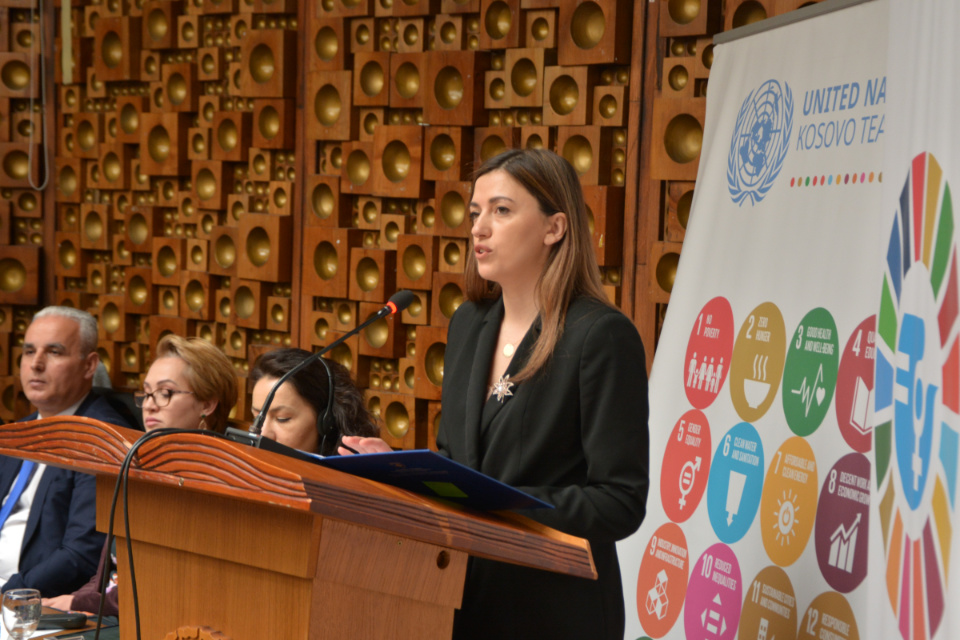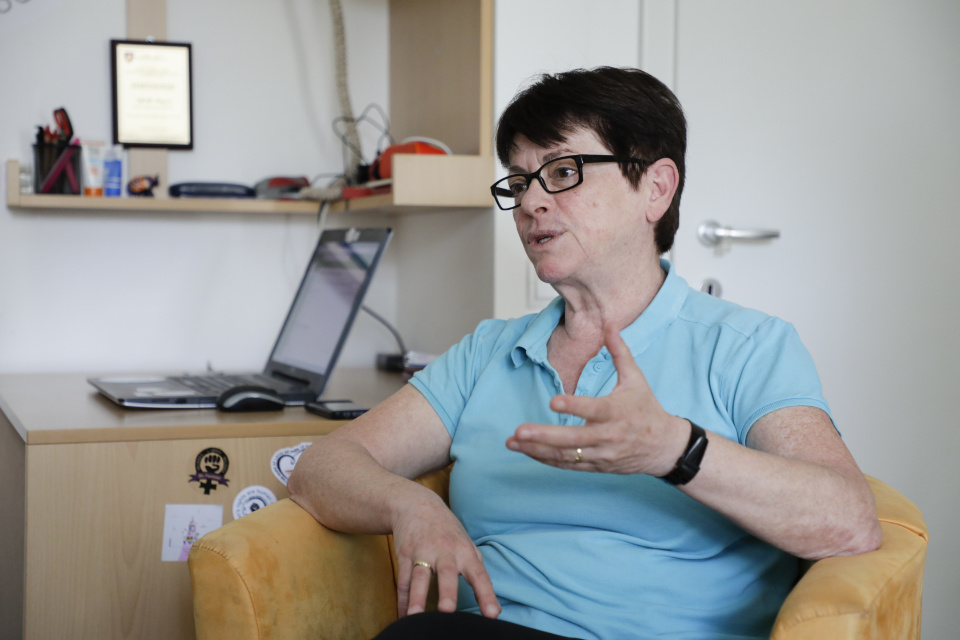Recognizing domestic violence as a criminal offence, a big step towards justice for women in Kosovo
Date:

More women from Kosovo* are reporting cases of violence since the Criminal Code was revised in 2018 to treat domestic violence as a separate criminal offence, which was achieved with the support of regional programme on ending violence against women in the Western Balkans and Turkey, “Implementing Norms, Changing Minds,” funded by the European Union.
Kosovo made progress on its legal framework addressing domestic violence, accurately defining all acts of domestic violence, in alignment with the provisions of the Convention on preventing and combating violence against women and domestic violence, known as the Istanbul Convention. For this, the Security and Gender Group (SGG), a multi-stakeholder group chaired by UN Women, drafted in 2018 legal recommendations for including sexual harassment and domestic violence in the Criminal Code. SGG submitted a proposal emphasizing the need to define domestic violence in accordance with the requirements of the Istanbul Convention.
As per the amendment of the Criminal Code, the perpetrator can be sentenced up to three years in jail. Since the revisions in the Criminal Code, reports of domestic violence cases have increased according to Kosovo Police. In 2019, 650 more cases were registered than in 2017.
Noting the increase in reporting of domestic violence cases, the former Minister of Justice Albulena Haxhiu stated: “No one should be silent when faced with violent and punishable actions that endanger the lives of women and society as a whole. This is why this amendment is both a preventive and punitive mechanism.”

The amendment of the Criminal Code is seen a big step towards justice, being essential to help institutions in their fight against gender-based violence and to ensure that perpetrators are being punished for the crimes they commit.
“Domestic violence is not a private matter and should not be kept hidden. It is a state and institutional responsibility. The Ministry of Justice has an important role to play in this regard because it is also responsible for institutional coordination in addressing cases of domestic violence. The security and justice authorities already have an obligation to take domestic violence cases seriously. Inter-institutional cooperation, as well as with civil society or local and international organizations, is vital,” said the former Minister Haxhiu.
Vlora Nushi, UN Women Kosovo Head of Office, has stated: “The new criminal framing is a fundamental step towards the elimination of the culture of impunity for gender-based crimes in Kosovo.” She also highlighted that “This culture of impunity offends the integrity of our society as a whole, and as such, it must be prosecuted to the fullest extent of the law.”
Studies have shown that more than half of women in Kosovo have experienced some form domestic violence in their lifetimes. “In the years 2015-2017, 49 women lost their lives due to violence perpetrated by family members. Still, as the court data shows, there were very few convictions for such crimes. Courts often treated crimes perpetrated within domestic relationships as a civil proceeding, even when a criminal offence was committed. And that is exactly why we considered the amending process a must,” said Igballe Rogova, Executive Director of Kosovo Women's Network, one of the SGG members.

Thus, the amendment of the Criminal Code will help institutions in their fight against violence against women and ensure that perpetrators are being punished for the crimes that they commit. “Although it’s too early to start seeing major improvements, we at least hope that a culture of proper sentencing will be set in place as soon as possible, and that these provisions will encourage more women to report domestic violence,” concluded Igballe Rogova.
* For the European Union, this designation is without prejudice to positions on status, and is in line with UNSCR 1244/1999 and the ICJ Opinion on the Kosovo declaration of independence. For UN Women, references to Kosovo shall be understood to be in the context of UN Security Council Resolution 1244 (1999).